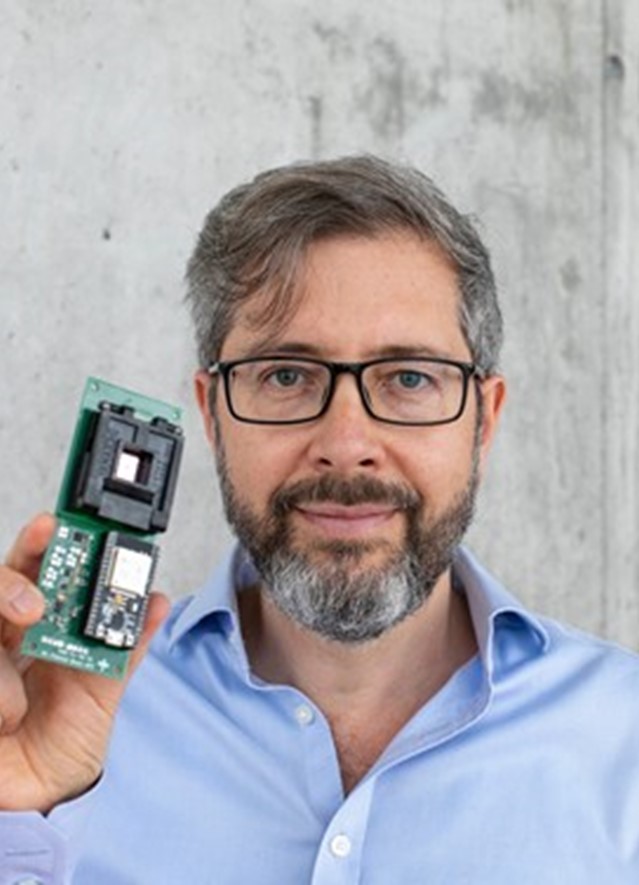
搜索网站、位置和人员

新闻与活动 活动信息
工学院专题学术讲座 | Gianaurelio Cuniberti 昆尼伯提: Machine Learning for Molecular Sensing
时间
2024年4月8日(周一)
15:30-17:00
地点
西湖大学云谷校区E2-313
主持
西湖大学工学院 曾安平 教授
受众
全体师生
分类
学术与研究
工学院专题学术讲座 | Gianaurelio Cuniberti 昆尼伯提: Machine Learning for Molecular Sensing
时间:2024年4月8日(周一) 15:30-17:00
Time: 15:30-17:00, Monday, April 8, 2024
地点:西湖大学云谷校区E2-313
Venue: E2-313, Yungu Campus
主持人: 西湖大学工学院 曾安平 教授
Host: Prof. An-ping Zeng, Chair Professor, Westlake University
语言:英文
Language: English
主讲嘉宾/Speaker:

Prof. Gianaurelio Cuniberti
Professor
Dresden University of Technology
主讲人简介/Biography:
Professor Gianaurelio Cuniberti holds since 2007 the Chair of Materials Science and Nanotechnology at the Technische Universität Dresden (TU Dresden) and the Max Bergmann Center of Biomaterials in Dresden, Germany. He is a member of the TU Dresden School of Engineering Sciences (Materials Science) and of the School Science (Physics). He studied Physics at the University of Genoa, Italy (where he got his B.Sc. and M.Sc.) and obtained his Ph.D. in 1997 at the age of 27 in a collaboration between the University of Genoa and the University of Hamburg, Germany. He was visiting scientist at MIT and the Max Planck Institute for the Physics of Complex Systems Dresden. From 2003 to 2007, he was the head of a Volkswagen Foundation Research Group at the University of Regensburg, Germany. His research activity is internationally recognized in more than 400 scientific journal papers to date. He initiated and organized numerous workshops, schools, and conferences and took part in international research training networks, offering extensive opportunities for young scientists. He has given plenary and invited talks at numerous international meetings. He serves as a referee for numerous high-impact journals, and for several funding research institutions including among others the EU, the German Science Foundation (DFG), the USA National Science Foundation (NSF), the German Israeli Foundation (GIF), and the Alexander von Humboldt Foundation. He received several talent scholarships and awards including the Max Planck Society Schloeßmann award (2001) and the VolkswagenStiftung Research Group Individual Grant (2003). He is a member of several scientific organizations and a corresponding member of the Umbrian Academy of Sciences. Gianaurelio Cuniberti is an Honorary Professor at the Division of IT Convergence Engineering of POSTECH, the Pohang University of Science and Technology since 2009, since 2011 Adjunct Professor for the Department of Chemistry at the University of Alabama, and since 2019 Guest Professor at SJTU. In 2018 he became a faculty member of the transcampus between TU Dresden and King’s College London. Professor Gianaurelio Cuniberti is an elected member of the European Academy of Sciences, of the Academia Europaea and of the Germany National Academy of Science and Engineering (acatech)
讲座摘要/Abstract:
Olfaction, an ancient sensory system, provides intricate information about the environment. In emulation of this biological process, neuromorphic devices in conjunction with machine learning algorithms, endeavor to replicate and digitize the olfactory capabilities. This presentation focuses on the gas discrimination and identification capabilities of neuromorphic nanosensors. These nanosensors, constructed with functionalized nano materials, were integrated into multi-channel gas sensor devices, and their sensing signals were recorded upon exposure to diverse gases. To unravel the temporal characteristics embedded in the sensing signals, we employ machine learning algorithms to extract meaningful patterns and discern specific gases. The integration of machine learning significantly enhances the electronic olfaction system's gas identification performance across a wide spectrum of gases. This innovative platform not only downsizes electronic noses but also digitizes olfactory information, enabling the precise detection and identification of various gases and volatile organic compounds (VOCs). By leveraging machine learning, our electronic olfaction system demonstrates exceptional capabilities applicable to diverse fields such as pathogen detection, environmental monitoring, and disease diagnosis. The fusion of neuromorphic nanosensors and machine learning algorithms creates a powerful synergy, paving the way for advanced molecular sensing technologies with broad-ranging applications.
讲座联系人/Contact:
huangyuhui@westlake.edu.cn

















